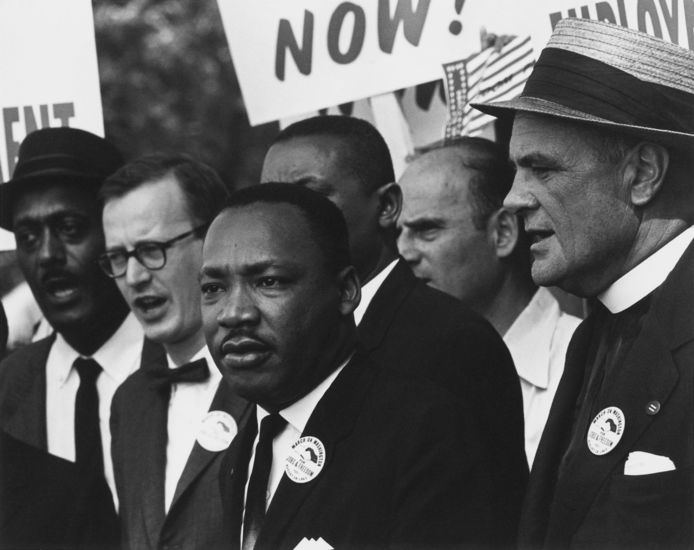It takes the derisive and cynical mind to express the thought that all order must collapse, and that the indulgence of our dreams are destined to crash, burn and go awry. It is another matter altogether to witness a theatre company symbolizing the excesses of ambition and do exactly that—the crashing and burning—in ways one might neither immediately expect nor forget. There is something about watching a finely choreographed self-destruction that is piercingly, and harshly, socially on-the-nose.
This is precisely the mantle that Dublin-and-London-based experimental theatre troupe Dead Centre has chosen to take up, if only to then throw through a window or torch the drapes with, in their 2015 postmodern opus “Chekhov’s First Play,” co-directed and co-written by Ben Kidd and Bush Moukarzel, which returns to U.S. audiences for a brief, volatile reprise at the Irish Arts Center through Nov. 6.
The Obie-winning company presents a mischievously serious adaptation of Anton Chekhov’s goliath first play “Platonov,” written by Chekhov at age 19; an attempt at which, from its outset, taps deep into the collective psyche and sounds off certain contemporary alarms.
“Chekhov’s First Play” may possibly be the most deconstructionist play you might ever see, short of actors chiseling plaster from the walls and tearing its audience limb from literal limb. Had there been an intermission, they might have done so.
Before the play begins, audiences are greeted by a proscenium curtain so red and suspiciously formulaic it might have been on loan from David Lynch, and a haze hangs above the ceiling lights inexplicably. Big, cushioned headphones line the backrests of every seat, which seems weird, but when worn, they are playing incidental music, a quaint concerto, which seems fine. All seems good and usual, then the director (Bush Moukarzel) walks onstage with a microphone, and a gun, requesting us to hear his live commentary of Chekhov.
Appearing as farce, audiences bemuse of the meta-director’s pithy intentions—that theatre is better enjoyed when explained—and of his repeated, quiet disappointment of failing to do such (“This play is getting in the way of me explaining it.”) as flaws and faults arise, both in the daunting text, and mishaps amongst all but archetypal actors. The play appears to be a lighthearted satire on over-thinkers, until the directors shoots himself, a wrecking ball smashes the set, and all spirals into an orgiastic dismemberment of civility, rationale, and self-scrutiny.
The performance of “Chekhov’s First Play” is imbued with the ominous and uncanny, and descends into a surreal dissection of society and psychological autopsy. Throughout the performance, characters rip away and disavow scenery, props, wigs, costumes and even bodies, occupying audience seats, and reciting “Is this mine? I can’t imagine owning anything,” in an epic rejection of property.
In its original text, Chekhov’s “Platonov” is regarded as incapable of performance: a five-hour ordeal so overfilled with characters and overwrought with plot that it is realistically unstageable—unsustainable, one might say—and of a conscientiousness to decadence this revisited play is palpable. As Triletsky (Paul Reid) says of the modern era being “the age of cancer…of uncontrollable growth,” this production is saturated with criticisms on Western norms and concepts of ownership that Chekhov would perhaps abhor and adore.
Among the novelties of this production is the inclusion of headphones which audiences are recommended to wear (citing the root of the word audience “to hear,”), and enticed by the curiosity of having “another voice in your head,” from the play’s characters, making this experience of theatre more collectively intimate, isolating, and intrusive, fascinatingly at once. The second novelty of this show is the selection of an audience member to play the leading part of Platonov, who, guided by portable headset, interacts silently with the performers throughout the duration of the show. This proverbial, awaited Godot arrives from beyond the artificiality of the stage, an everyman of pure idolatry; to be everything we want “Platonov” to be, and nobody.
This production’s ensemble, starring Bush Moukarzel, Ali White, Paul Reid, Tara Egan-Langley, Dylan Tighe, Alexandra Conlon, and Daniel Reardon, is perfectly cast, and exquisitely refined to their purpose on this stage.
“Chekhov’s First Play” follows a commonplace trend in Irish theatre of late, of personifying the blithe and overwhelming anxiety poised toward modern, materialistic life. Yet what’s more peculiar about this production is its representation of modern theatre in itself having an existential crisis; the dramatic nervous breakdown of an art form in which nobody, or far fewer in between of the public, believe in the sincerity of its mystifying nature, and have chosen instead in favor of tearing it all down in one fell swoop.
Destruction looms of all sorts in this play—from physical demolition, self deprecation, and indifferent inferences to suicide—of which audiences should be wary.
This is not a sit-back-and-relax spectacle; this is a toe-curling and head-spinning foray into your dystopian self. It is a ravishing, if at times nerve-rattling experience to have.
Firing the gun may be the controversial question, yet “Chekhov’s First Play” aims to be incendiary.
For tickets, visit irishartscenter.org









